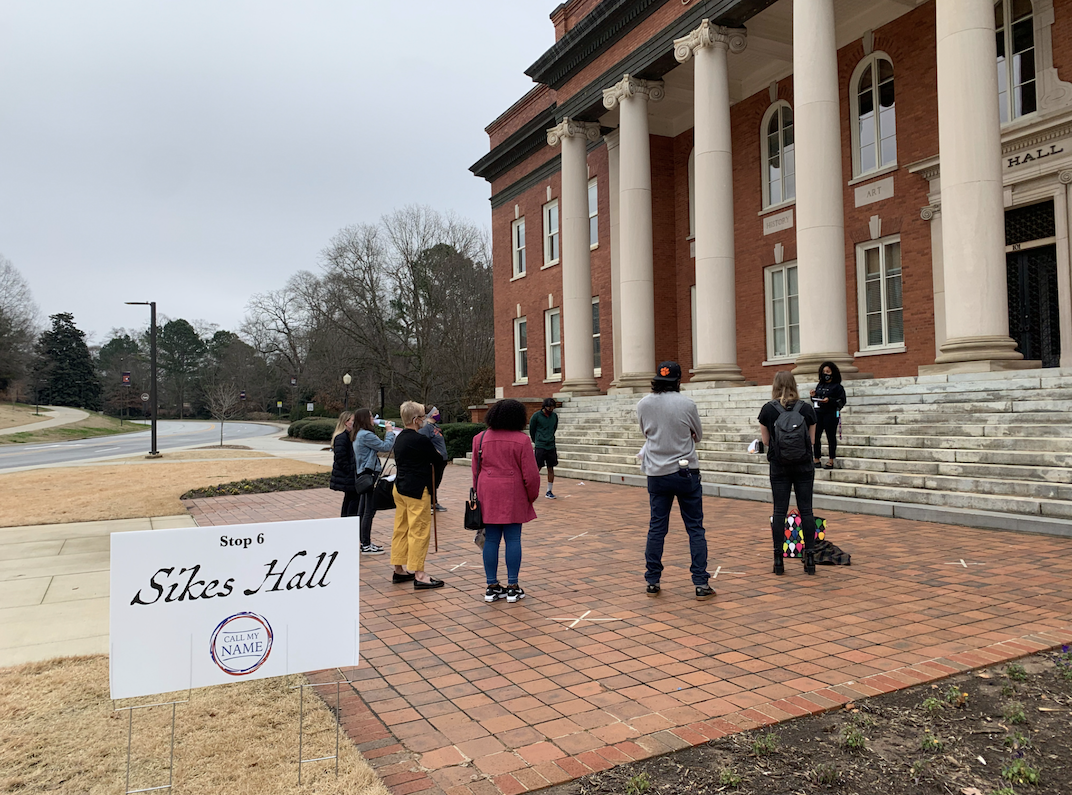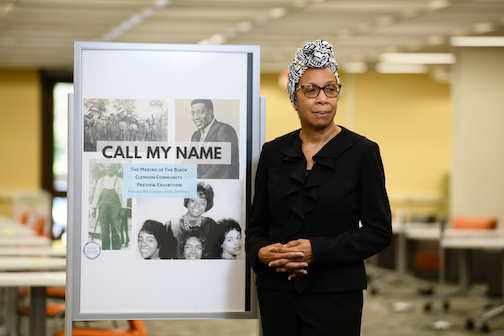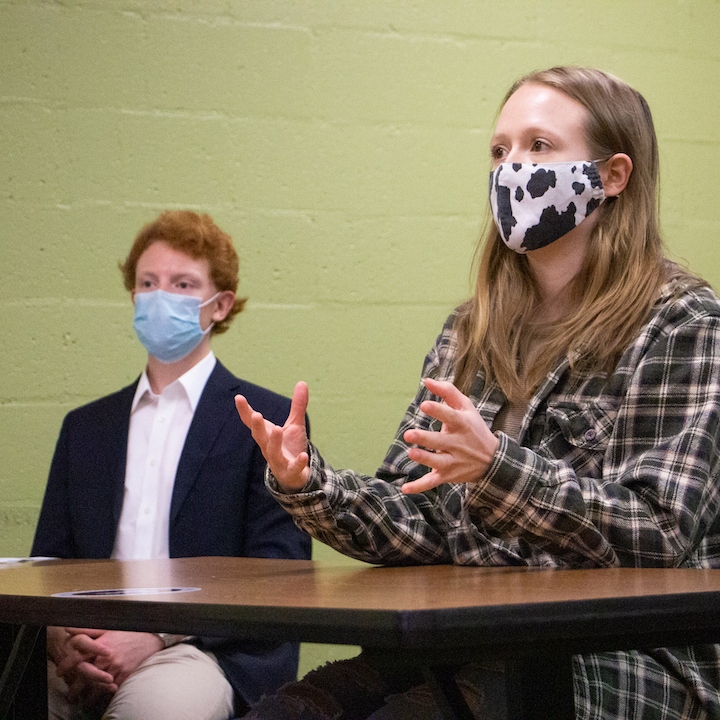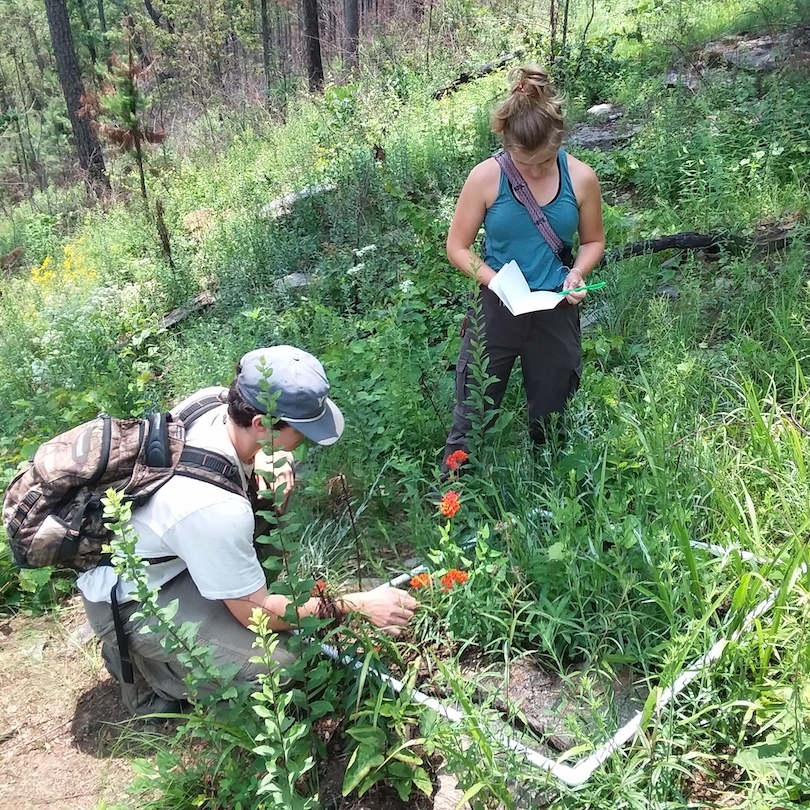Call and Response
By: Piper Starnes

Guests learn about the history of Sikes Hall from Jayda Hart during the Call My Name tour. Photo by Rhondda Thomas
The Call My Name Creative Inquiry project, led by Dr. Rhondda Thomas in the Department of English, has uncovered seven generations of Black history on Clemson University’s campus, from the first free Africans and enslaved persons of African descent in 1737 to the 2021 activists of today. The Creative Inquiry team is diligently researching, documenting and sharing stories and legacies that have been forgotten, silenced or lost.
The project title, Call My Name, is reminiscent of the call-and-response tradition in African American culture of calling one’s name to invite them to participate and engage in the conversation. By acknowledging Black people in Clemson’s history, people will be contributing to the restoration of African American history at Clemson University. “Embracing the truth of history is important. We don’t excise the parts out that are more difficult and painful. We want to tell whole stories as complete as possible,” Thomas said. While it may be difficult to reach everyone, Thomas and her students are taking multiple approaches to share the Call My Name project with people of all backgrounds and interests.
One of the Creative Inquiry project’s focuses is The Call My Name walking tour. In this tour students, faculty and community members learn the previously untold histories of 14 campus locations, including the Woodland Cemetery where hundreds of unmarked graves belonging to enslaved people, sharecroppers and incarcerated laborers lay. Beginning in the fall of 2021, the Call My Name Student Advisory Board will offer these in-person tours to continue sharing these buried narratives.
The Call My Name Creative Inquiry team is working to release an immersive learning application (app) in the near future. In the app, users can interact with text, graphics, videos and links to learn about people, places and events in Clemson’s Black history and heritage. Other future events and exhibits include a traveling museum exhibition, 5k run/walk, theatrical play and more Black History month events.
This project allows students to think critically about the University’s approach to inclusivity. “We use the words ‘Clemson family’ and ‘Clemson legacy’ a lot, and that’s a great thing, but there are more stories than just those about the Calhoun family. This is about everyone—our family, our history and our legacy, so let’s learn about it and talk about it,” Sarah Ann Kenneson, a senior health science major, said. The opportunity to learn and reflect on one’s place in the Clemson community is invaluable. “We [students] all live and exist here for four years, or longer, at Clemson University. It’s important to know the history of what’s here because history affects the present, and the present affects the future,” Malaysia Barr, a junior communications major, said. By empowering people with the knowledge and awareness to become advocates for positive change, the Call My Name Creative Inquiry project fosters the public virtue of honoring each person’s humanity, value and narrative.

Dr. Rhondda Thomas gives and introduction to the “Call My Name” research project.
Photo by Ashley Jones
CONTACT
Barbara J. Speziale
Director
(864)656-1550
bjspz@clemson.edu
Cora Allard-Keese
Assistant Director
(864)656-0721
callara@clemson.edu


